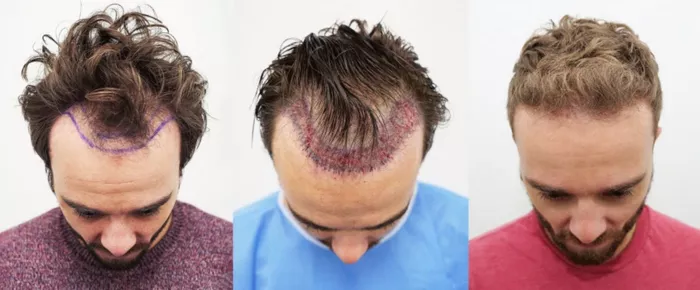Hair transplant surgery is a significant step for individuals seeking to restore their hairline and regain confidence. It involves intricate procedures and careful post-operative care to ensure optimal results. Among the plethora of post-operative concerns, patients often inquire about the consumption of coffee. Does coffee affect the success of a hair transplant? Is it harmful to indulge in your favorite cup of joe after the surgery? Let’s delve into these questions to provide clarity and guidance for individuals undergoing or considering hair transplant surgery.
Does Coffee Affect Hair Transplant?
Coffee, a widely consumed beverage known for its stimulating properties, raises concerns among those undergoing hair transplant surgery. The primary apprehension revolves around whether caffeine can have adverse effects on the newly transplanted hair follicles.
Research suggests that caffeine, when applied topically, may have a positive impact on hair growth by stimulating the hair follicles and promoting hair elongation. However, the effects of ingesting caffeine through beverages like coffee on hair transplant outcomes remain less explored.
Ingested caffeine, including that from coffee, primarily affects the body’s systemic functions, including blood circulation and hormonal balance. While there’s no direct evidence linking coffee consumption to failed hair transplants, some experts advise caution due to caffeine’s potential to constrict blood vessels, which might theoretically affect blood flow to the scalp and newly transplanted follicles.
Is It Harmful to Drink Coffee After a Hair Transplant Surgery?
The immediate post-operative period following a hair transplant is crucial for ensuring successful graft survival and optimal healing. During this phase, it’s essential to adhere to the post-operative care instructions provided by your surgeon. While coffee consumption is generally safe for most individuals, there are a few considerations to keep in mind:
1. Dehydration: Coffee is a diuretic, meaning it can increase urine production and potentially lead to dehydration if consumed in excess. Dehydration can compromise the body’s ability to heal and may impede the recovery process after surgery.
2. Blood Pressure: Caffeine can temporarily elevate blood pressure levels in some individuals. While moderate increases in blood pressure are unlikely to pose significant risks, individuals with hypertension or cardiovascular concerns should consult their healthcare provider regarding coffee consumption post-surgery.
3. Sleep Disruption: Post-operative recovery often requires adequate rest and sleep. Excessive caffeine intake, especially later in the day, can disrupt sleep patterns and hinder the body’s healing process.
While these considerations highlight potential concerns associated with coffee consumption after a hair transplant, it’s essential to emphasize moderation and individual variability. Some individuals may tolerate coffee well post-surgery without experiencing adverse effects, while others may benefit from reducing or temporarily abstaining from caffeine consumption.
How Long Should I Avoid Coffee?
The duration for which you should avoid coffee or caffeine-containing beverages post-hair transplant surgery can vary depending on several factors, including your overall health, healing progress, and surgeon’s recommendations. While there’s no definitive consensus on the ideal duration, here are some general guidelines:
1. Immediate Post-Operative Period: In the immediate aftermath of surgery, it’s advisable to avoid coffee and other caffeinated beverages to minimize the risk of dehydration and potential adverse effects on blood pressure and sleep. Your surgeon may recommend sticking to hydrating fluids and avoiding substances that could interfere with healing.
2. First Week to Ten Days: During the initial phase of recovery, focus on consuming a balanced diet rich in nutrients that support healing and hair growth. While occasional, moderate coffee consumption may be permissible for some individuals, it’s essential to prioritize hydration and listen to your body’s signals.
3. Consultation with Your Surgeon: Your surgeon is your best resource for personalized guidance regarding post-operative care, including dietary recommendations. If you have specific concerns or questions about consuming coffee after a hair transplant, don’t hesitate to discuss them during follow-up appointments or reach out to your surgical team for clarification.
Ultimately, the decision to reintroduce coffee into your post-operative routine should be made in consultation with your healthcare provider, taking into account your individual health status and recovery progress.
Conclusion
In conclusion, while there’s no definitive evidence suggesting that moderate coffee consumption directly impairs the success of a hair transplant, it’s essential to approach post-operative dietary choices with caution and mindfulness. Hydration, adequate nutrition, and adherence to post-operative guidelines are paramount for optimizing healing and achieving desirable outcomes.
If you’re considering hair transplant surgery or have recently undergone the procedure, prioritize open communication with your surgical team regarding any questions or concerns about dietary habits, including coffee consumption. By working collaboratively with your healthcare providers and following personalized recommendations, you can navigate the post-operative period with confidence and support optimal healing and hair growth.
Remember, every individual’s journey to hair restoration is unique, and maintaining a healthy lifestyle, including mindful dietary choices, can contribute to long-term satisfaction with your hair transplant results.


